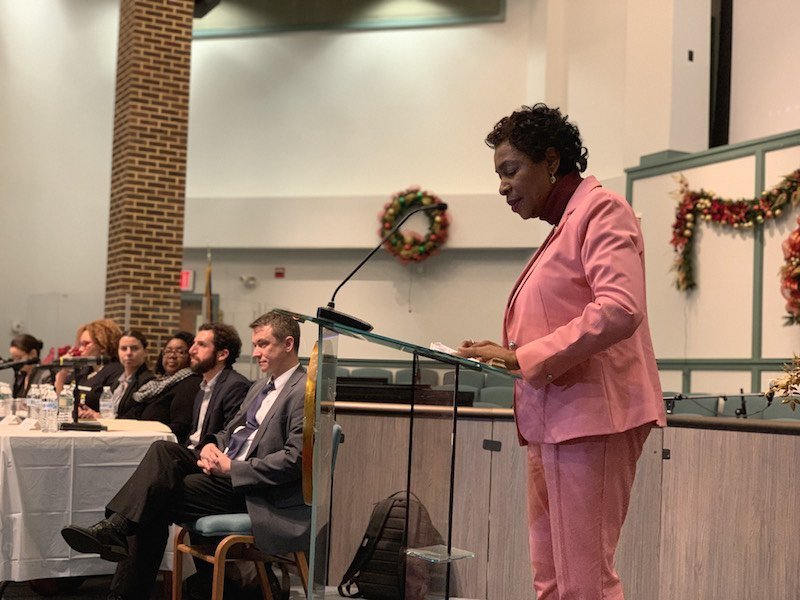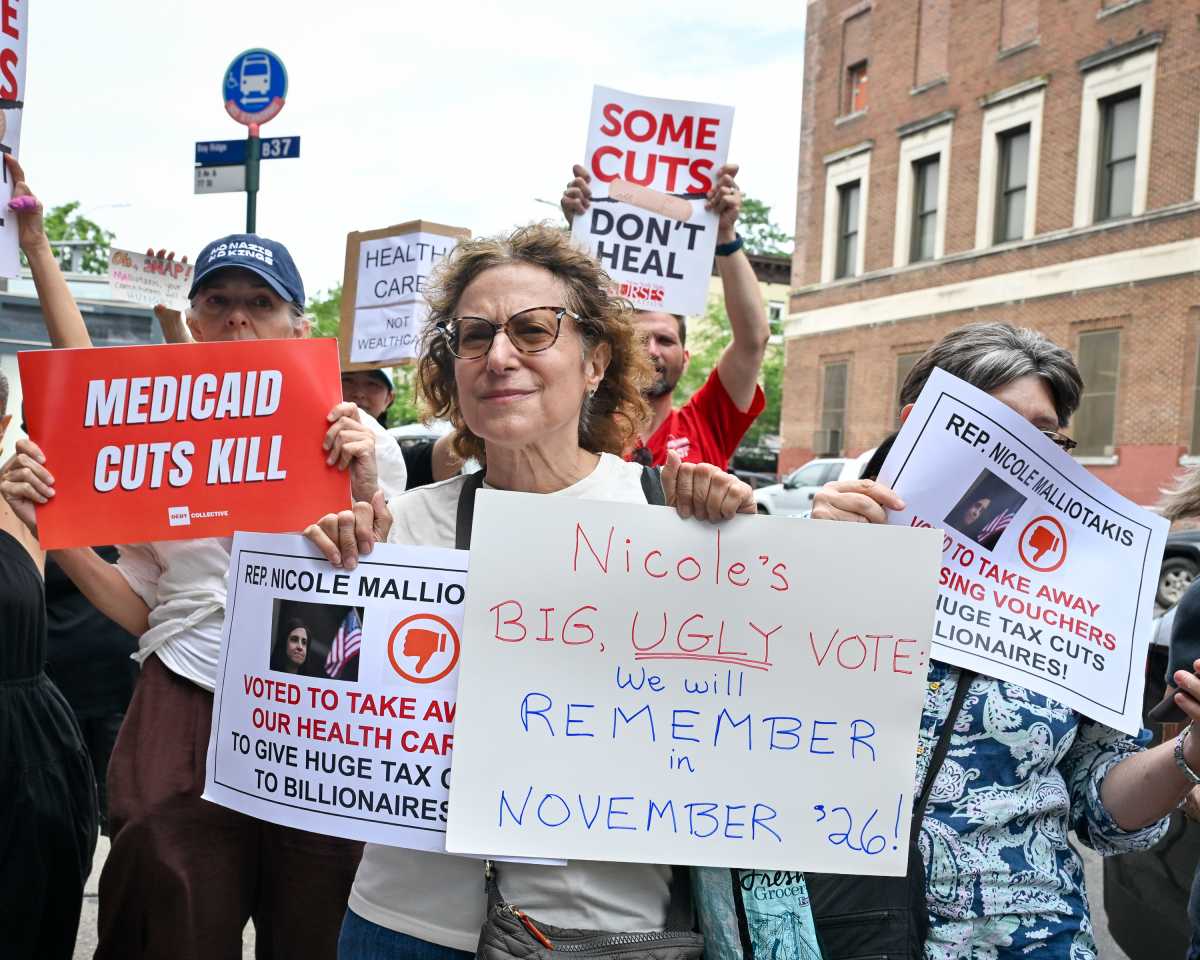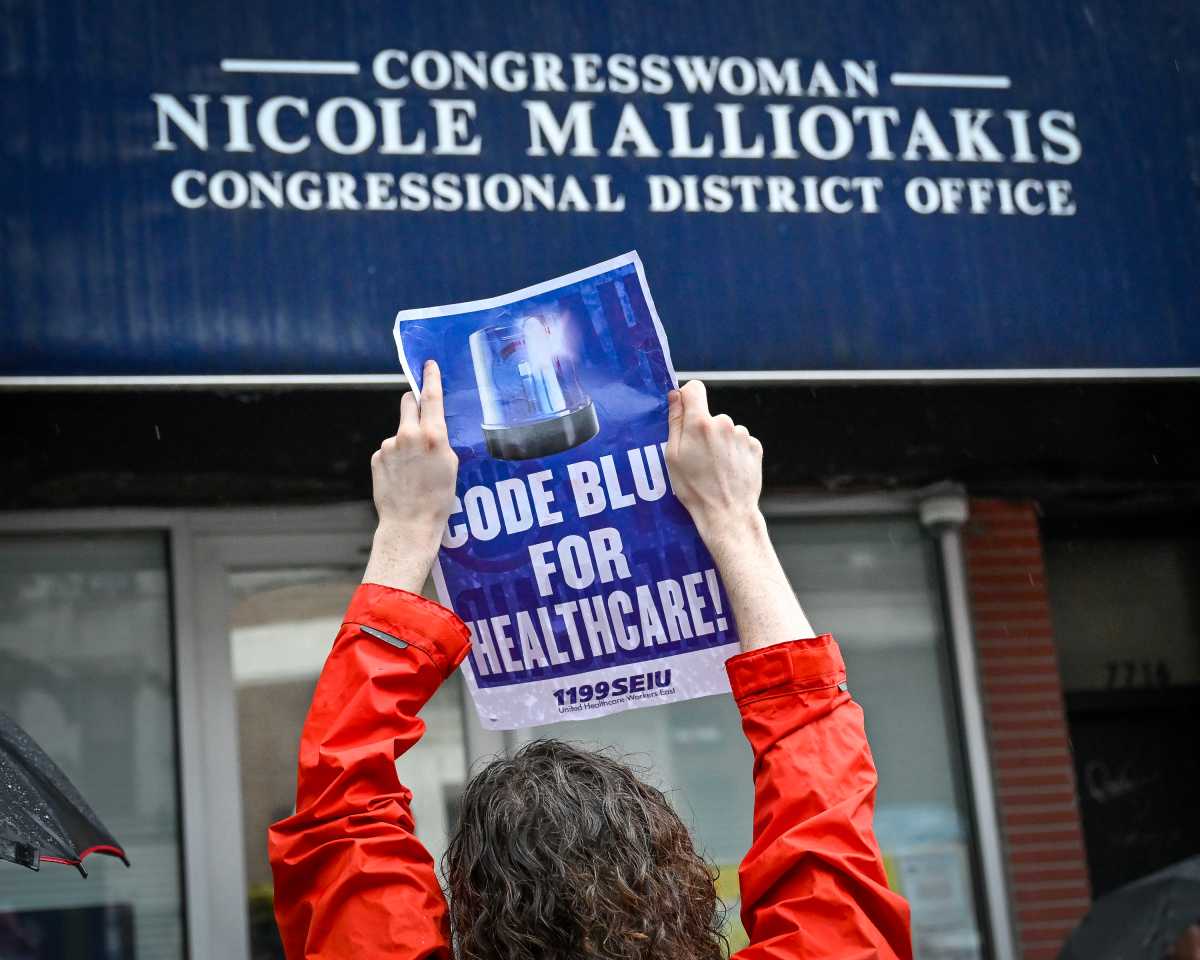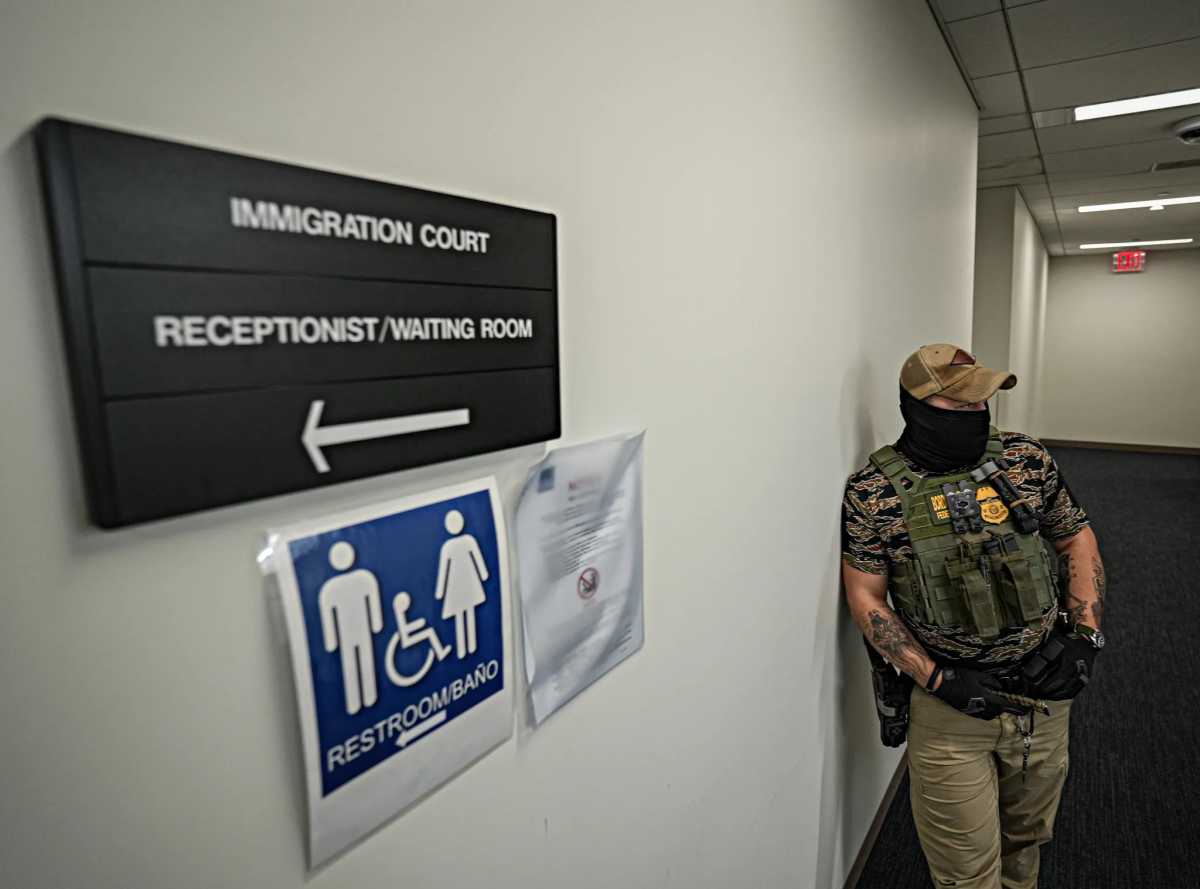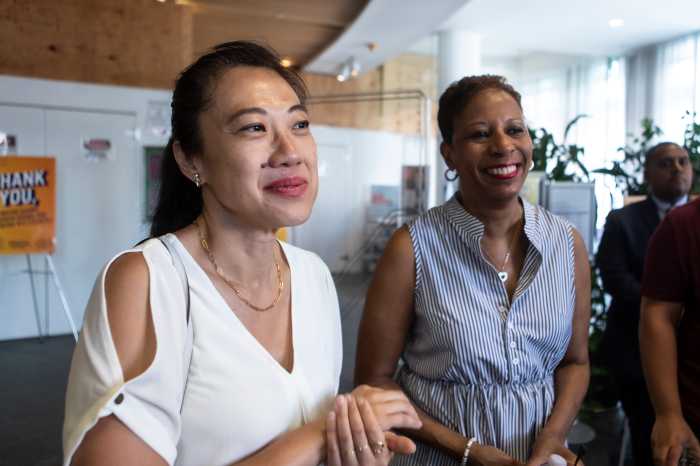U.S. Rep. Yvette Clarke (D- Brownsville, Crown Heights, East Flatbush, Flatbush, Kensington, Midwood, Prospect Heights, Prospect Lefferts Gardens, Park Slope.) last night brought togther a roundtable team of immigration advocates to outline the nuts and bolts of a Trump Administration proposal that could stop immigrants from getting permanent alien residency [green cards] if they use such social services as food stamps, housing vouchers or medicaid.
The Department of Homeland Security (DHS) released the proposal in September, which would change the “public charge rule,” a policy designed to reduce the number of people who are eligible for green cards and other visas, by redefining what makes them dependent on government benefits (or likely to be in the future).
Congress long ago established that the U.S. government can deny a green card to anyone who “is likely at any time to become a public charge” but without defining what “public charge” means.
Since 1999, immigration officers have adopted the guiding principle that a public charge is someone “primarily dependent on the government for subsistence,” as demonstrated by either (a) using public cash assistance for income maintenance or (b) institutionalization for long-term care at government expense, according to initial reports.
The new proposal would more strictly enforce existing rules for millions of immigrants applying for green cards or visas by scrutinizing their use of food stamps, welfare, housing vouchers or Medicaid.
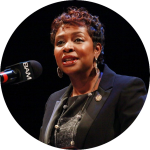
“As with many recent policies coming out of the Trump administration, the Department of Homeland Security’s newly proposed public charge rule change will deeply affect a large portion of the residents of the ninth congressional district of New York,” said Clark at the forum held at the Lenox Road Baptist Church on Nostrand Avenue in Flatbush. “Now that this rule change is somewhat imminent, it’s important that we know our rights and understand how it will affect our community and share strategies to ensure that our families, congregations and communities stay safe.”
The roundtable panel included, Patrice Lawrence the director of policy and advocacy at UndocuBlack, Natalie Lowe Burge, managing attorney at Caribbean Women’s Health Association, Max Hadler the director of health policy at the New York Immigration Coalition, Fernanda Hipskind immigration attorney at Council of Peoples Organization and Shawn Blumberg, supervising attorney for the Youth and Communities at Brooklyn Defenders Services.
Hadler explained that the proposed public charge changes will expand the definition by adding in other public assistance programs such as non-emergency Medicaid, SNAP, housing assistance, public housing/ section-8 housing, and Medicare part-d low-income subsidy.
Similarly, Lawrence illustrated in her Powerpoint presentation examples that applicants who are considered to have a low-income, but do not currently use any public assistance programs are subject to heavier scrutiny because they could potentially need public assistance in the future.

As highlighted by all panel members the proposed change does not affect immigrants who have already received their green card, immigrants on the pathway becoming a naturalized citizen, and immigrants who are considered refugees, grantees of asylum, victims of violence/ domestic violence, and youths who have Special Immigrant Juveniles (SIJ) status.
Assemblywoman and Public Advocate candidate Latrice Walker (D-Brownsville) preached that those in opposition to the proposed changes speak up and know their rights.
“I want us to know all of the things that people still have access to, what is not a public benefit so that people know,” said Walker. “I know the congresswoman talks about how the tea party and different things like to show up, well we can show up too.”


